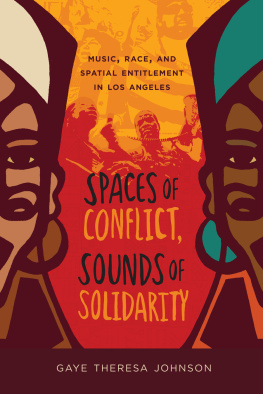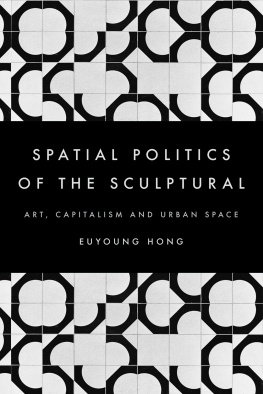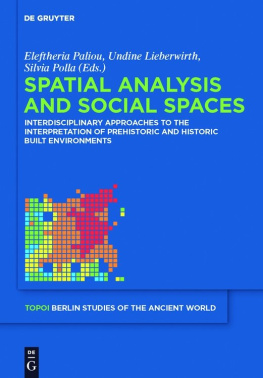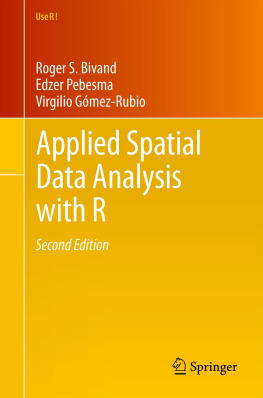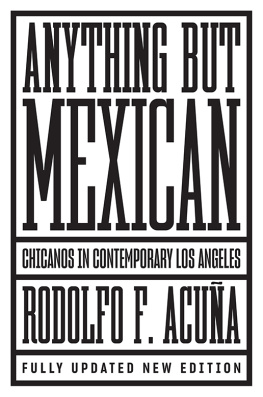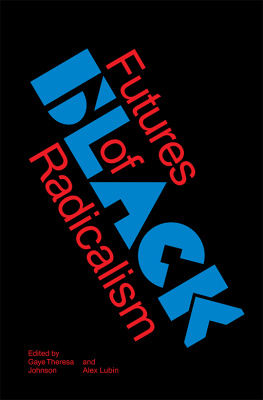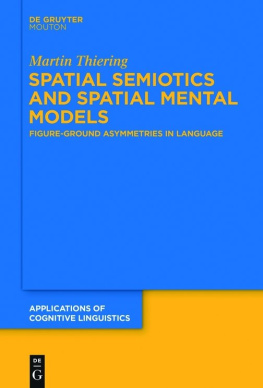

THE GEORGE GUND FOUNDATION
IMPRINT IN AFRICAN AMERICAN STUDIES
The Goerge Gund Foundation has endowed
this imprint to advance understanding of
the history, culture, and current issues
of African Americans.
The publisher gratefully acknowledges the generous support of the African American Studies Endowment Fund of the University of California Press Foundation, which was established by a major gift from the George Gund Foundation.
Spaces of Conflict, Sounds of Solidarity
AMERICAN CROSSROADS
Edited by Earl Lewis, George Lipsitz, George Snchez, Dana Takagi, Laura Briggs, and Nikhil Pal Singh
Spaces of Conflict,
Sounds of Solidarity
Music, Race, and Spatial Entitlement
in Los Angeles
Gaye Theresa Johnson

UNIVERSITY OF CALIFORNIA PRESS
BerkeleyLos AngelesLondon
The publisher gratefully acknowledges the generous support of the Lisa See Endowment Fund in Southern California History and Culture of the University of California Press Foundation.
University of California Press, one of the most distinguished university presses in the United States, enriches lives around the world by advancing scholarship in the humanities, social sciences, and natural sciences. Its activities are supported by the UC Press Foundation and by philanthropic contributions from individuals and institutions. For more information, visit www.ucpress.edu.
University of California Press
Berkeley and Los Angeles, California
University of California Press, Ltd.
London, England
2013 by The Regents of the University of California
Library of Congress Cataloging-in-Publication Data
Johnson, Gaye Theresa.
Spaces of Conflict, sounds of solidarity : music, race, and spatial entitlement in Los Angeles / Gaye Theresa Johnson.
p. cm.
Includes bibliographical references.
ISBN 978-0-520-27527-0 ISBN 978-0-520-27528-7
eISBN: 9780520954854
1. Los Angeles (Calif.)Race relationsHistory. 2. MinoritiesCaliforniaLos AngelesSocial conditions. 3. MinoritiesPolitical activityCaliforniaLos AngelesHistory. 4. Community developmentCaliforniaLos AngelesHistory. 5. Popular musicSocial aspectsCaliforniaLos Angeles. 6. Los Angeles (Calif.)Social conditions.
I. Title.
F869.L89A2533 2013
979.494-dc232012039813
Manufactured in the United States of America
22 21 20 19 18 17 16 15 14 13
10 9 8 7 6 5 4 3 2 1
In keeping with a commitment to support environmentally responsible and sustainable printing practices, UC Press has printed this book on Rolland Enviro100, a 100% post-consumer fiber paper that is FSC certified, deinked, processed chlorine-free, and manufactured with renewable biogas energy. It is acid-free and EcoLogo certified.
For Mary Ella and Theresita, for Shanti and Fauna,
for Clyde... with thanks.
For Juanita and Hymon, for abiding love and faith.
For Chuck and our Cayeloncita, for always.
Contents
Introduction
The Future Has a Past
The unmistakable roots of the universal solidarity of the colored peoples of the world are no longer predictable as they were in my fathers timethey are here.
Lorraine Hansberry
This is a book about interracial antiracist alliances, about divisions among aggrieved minority communities, and about the cultural expressions that emerge from shared urban spaces. Examining Afro-Chicano politics from the 1940s to the present, I reveal the radical antiracist and egalitarian cultural politics that helped nurture and sustain working-class alliances, intellectual advances, and cultural practices that challenge traditional boundaries of race, space, and region. These politics have resulted in critical interethnic challenges to structures of dominance in Los Angeles, making this story relevant to the history of diverse urban political cultures in every American city.
Relationships between African Americans and Mexican Americans in Los Angeles from World War II to the present have been characterized by both Conflict and coalition, by antagonisms and alliances. The histories of these two groups have been linked in the City of Angels (and all across the nation) by parallel but not identical histories of labor exploitation, housing segregation, and cultural demonization. Yet while sharing the experiences of containment and confinement, Black and Brown people have also been continually pitted against one another, manipulated by a white power structure to compete with each other for jobs, housing, prestige, and political power.
Sharing struggles, spaces, and sounds has enabled Black and Brown people to work together for social justice in Los Angeles over the decades. This is a story of both continuity and rupture. Although racism persisted, resistance always existed. Different eras posed different problems and provoked different solutions. The racial order and racial landscape of todays neoliberal global city is very different from that of the high-employment, high-wage metropolis of the 1940s and 1950s. Yet in the midst of enormous changes and transformations, Black and Brown residents of Los Angeles used the physical places they inhabited and the discursive spaces they imagined to assert their common humanity and forge shared struggles grounded in mutuality and solidarity. The political histories of these aggrieved communities entailed the creation of cultural forms that served as key conduits for the collective aspirations of disaffected youth in every generation. The key point underlying this book is that contemporary multiracial struggles for social justice did not emerge in a vacuum. Furthermore, the agents of these struggles deserve to hear and tell a better story about themselves as people and as a collective seeking freedoma better story than the one that now dominates the discourse on BlackBrown relationships. In other words, the just future envisioned by radical social actors and multiracial movements has a past.
I advance here a concept that I call spatial entitlement, a way in which marginalized communities have created new collectivities based not just upon eviction and exclusion from physical places, but also on new and imaginative uses of technology, creativity, and spaces. In many instances overlooked by social historians, everyday reclamations of space, assertions of social citizenship, and infrapolitical struggles have created the conditions for future successes in organized collective movements. Understanding it in this way renders everyday acts of resistance and survival demonstrative of more than just the courage of freedom seekers.
The variety of strategies enacted by working-class youth to imagine and articulate new modes of social citizenship have been underestimated as a site and mode of scholarly inquiry. In the face of persistent repression, particularly in the meaningful spaces of interracial congregation, these actions can be studied as a barometer of the power relationships between oppressed and oppressors. Taken together, they constitute a philosophy of action that allowed the futures of Black and Brown people to be considered using the same lens of possibility. Spatial entitlement provides a means for understanding how working-class communities and individuals secure or create social membership, even when the neighborhoods and meaningful spaces of congregation around them are destroyed.
Spatial entitlement requires an alternative understanding and construction of the meaning of citizenship. Traditionally, citizenship is defined in terms of social membership in a particular society or national identity. In this regard, Rogers Smith has argued that citizenship laws literally constitutethey create with legal wordsa collective civic identity. They proclaim the existence of a political people and designate who those persons are as a people, in ways that often become integral to individuals senses of personal identity as well. Excluded from these collective identities, aggrieved people have fashioned alternative expressions of collectivity and belonging.
Next page
